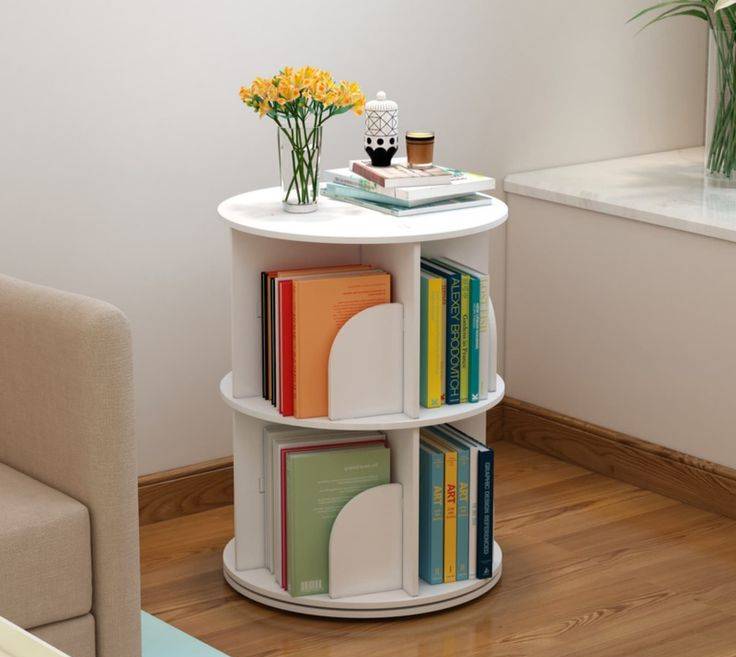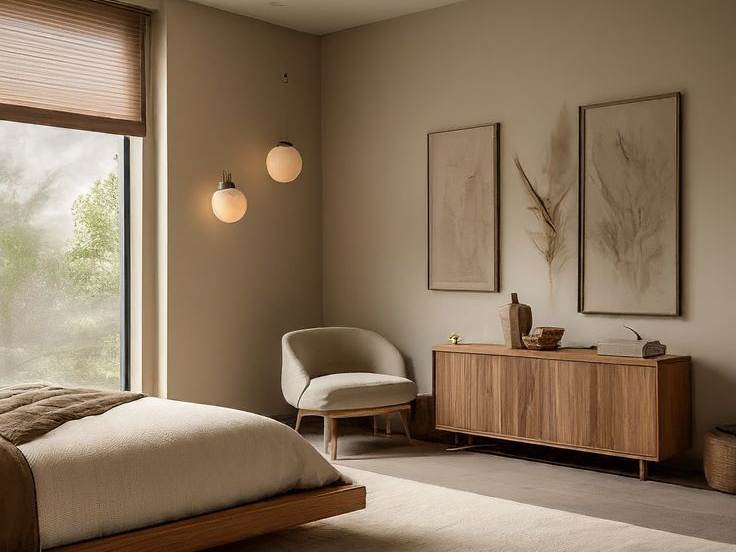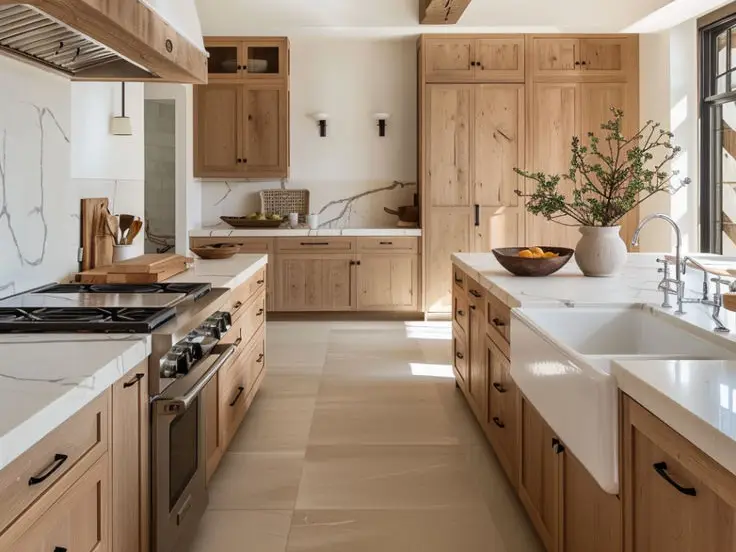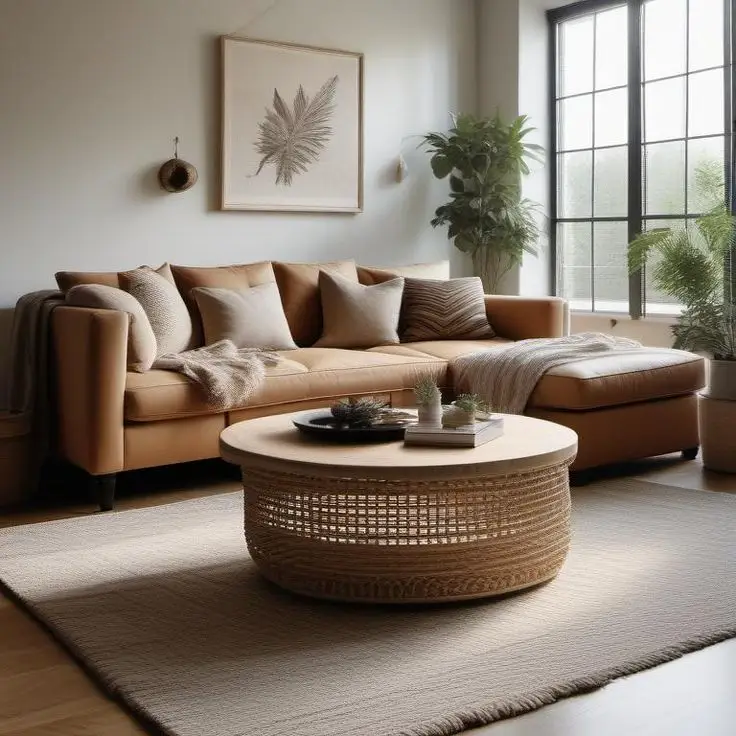Feng Shui principles is an ancient Chinese practice that focuses on creating harmony between individuals and their environment. Essentially, the term Feng Shui translates to wind and water. It symbolizes the flow of energy (Qi) in a space.
The idea is that when your surroundings are balanced and in harmony, you can improve various aspects of your life, such as health, relationships, and success.
While Feng Shui has its roots in Chinese culture, it has certainly established its unique relevance in India. You may be already aware that India has a long-standing tradition of Vastu Shastra, the ancient science of architecture that aims to balance space and create harmony between people and their environment.
Vastu shastra shares similar philosophies with Feng Shui principles. It focuses on the positioning and layout of buildings, the flow of energy, and the use of natural elements.
Today, as globalization continues to break down cultural barriers, many Indians are incorporating Feng Shui into their lives alongside vastu. This blending of practices can provide a more holistic approach, so you can choose the best elements from both philosophies to create balanced spaces.
Let us first take a brief look at some of the basic characteristics of Feng Shui.
| Characteristics | Description |
| Chi (Qi) Flow | Focus on the movement of life energy for harmony. |
| Five Elements | Remedies like mirrors and crystals adjust energy. |
| Yin and Yang | Balance of passive (Yin) and active (Yang) energies. |
| Bagua Map | Tool to assess areas of life through spatial energy. |
| Clutter-Free Spaces | Importance of decluttering for smooth energy flow. |
| Orientation and Layout | Strategic placement of items to enhance energy. |
| Natural Elements | Incorporation of plants, water, and light for tranquility. |
| Symbolism | Use of colors and symbols to attract desired outcomes. |
| Feng Shui Cures | Remedies like mirrors and crystals to adjust energy. |
| Seasonal Changes | Adjusting spaces according to seasonal energy shifts. |
| Personalization | Customizing Feng Shui practices for individual needs. |
Table of Contents
ToggleImportance of Feng Shui Principles in India
The significance of Feng Shui principles can be traced as follows –

- Enhancing Living Spaces
Urbanization in India has led to many living in compact apartments with limited space.
Feng Shui provides valuable tips on how to optimize these smaller areas by using furniture, colors, and decor to enhance positivity and energy flow. The goal is to make a smaller space feel more expansive and welcoming.
- Stress Reduction
With the fast-paced lifestyle in metropolitan cities, many individuals experience high-stress levels. Feng Shui principles emphasize the importance of a peaceful environment.
Incorporating concepts such as decluttering and creating tranquil spaces can help reduce stress and promote relaxation.
- Fostering Relationships
The principles of Feng Shui can aid in fostering better relationships among family members. Families can instantly improve communication and connection by creating inviting living areas and using beneficial colors and layouts.
- Boosting Prosperity
Many Indian businesses are turning to Feng Shui principles to create conducive work environments. Proper layout and design can attract positive energy and enhance productivity, thus leading to greater success and financial stability.
- Integrating Nature
Both Feng Shui and Indian philosophies emphasize the connection between humans and nature. Incorporating natural elements, such as plants and water features, is not only aesthetically pleasing but also beneficial for mental health.
- Holistic Wellness
As more people in India seek alternative methods for improving wellness, Feng Shui offers diverse techniques for achieving balance. This could include
arrangement of furniture, selection of colors, or even use of natural elements.
These practices support emotional and physical well-being, aligning with the increasing interest in holistic health solutions.
15+ Ways to Harmonize Energy for Crafting a Positive Living Experience With Feng Shui Principles
If you’re looking to create a harmonious residential plot, here are 15 classic Feng Shui principles to consider!
1. Choose Your Location Wisely
The location of your home is very important in Feng Shui. A good location helps you feel safe and calm.

Being surrounded by nature or in a quiet neighborhood like Rajarhat, Newtown also creates a welcoming space where you and your family can thrive.
So, look for a peaceful area that has natural barriers like trees or hills for protection. Avoid spots close to busy roads, as they can disrupt positive energy flow. That said, buying a residential plot in the Sri Sai Ujaan Nagar Township Project will be the best investment decision, any day!
2. Embrace the Command Position
The command position is about where you place important furniture, like your bed or desk. It should be positioned so you can see the door without being directly in line with it.
This setup helps you feel more secure and in control of your space.
When furniture is arranged this way, it makes you feel empowered. You’ll experience less anxiety, and your home will feel more comfortable and stable.
3. Create a Welcoming Entrance
Your entrance is the first thing people see, so it should be inviting! A clean entrance also encourages positive energy to flow into your home. It sets a positive tone for your home and creates a friendly atmosphere right from the start.
4. Declutter and Organize

Clutter can block positive energy and make your space feel chaotic. An organized home, on the contrary, provides clarity and peace. When everything has a place, you can relax and enjoy your surroundings more fully.
That’s why, you must regularly clear out unnecessary items and organize your belongings. You might want to start small to avoid feeling overwhelmed, and you’ll soon notice how much better your space feels.
5. Utilize Natural Light
Natural light is essential in Feng Shui as it brings a sense of warmth to your home.

Open your curtains to let sunlight in, making spaces feel brighter and more energizing. If areas are dark, mirrors can help reflect light.
Having plenty of natural light also creates a cheerful atmosphere and improves your mood. It makes your home feel alive and vibrant!
6. Use Aromatherapy Wisely
Aromatherapy involves using scents to influence your mood and well-being. Each fragrance has its own set of benefits, so select aromas that align with the intention for a specific room.
Essential oils, incense, and scented candles can create a calming or energizing atmosphere in your home.
For instance, lavender is known for its relaxing properties, making it perfect for bedrooms or quiet spaces, while citrus scents like lemon or orange can invigorate living areas and kitchens.
7. Install Good Lighting
Lighting plays a vital role in setting the mood and energy of your space. A well-lit home can feel more open and inviting, while dim or harsh lighting may create a heavy or uncomfortable atmosphere.

Combining natural light, like sunlight through windows, with different types of artificial lighting (such as lamps or ceiling fixtures) can create a balanced and harmonious environment.
When installing lighting, consider using dimmers. They allow you to adjust the brightness based on the time of day or the activity you are engaged in.
While bright lighting is excellent for work or social gatherings, softer lighting can create a cozy and intimate space for relaxation or conversation.
8. Incorporate Personal Items
Personal items such as photographs, artwork, and souvenirs help imbue your space with positive energy and memories.
Surrounding yourself with things that resonate with you also creates a sense of comfort and belonging. When you display meaningful objects, they serve as reminders of cherished experiences, which can uplift your mood.
Incorporating personal items also enhances the uniqueness of your space. You can use family photos, art from local artists, or travel keepsakes to express your identity and story! This connection strengthens the energy within your home, you will notice.
9. Maintain Cleanliness
Keeping your home clean is essential for positive energy flow, or Chi.
Dust and clutter can block energy, creating feelings of heaviness and stress. So, regularly clean surfaces and tidy up the physical appearance of your space. It will also promote mental clarity and tranquility!
Establish a routine for cleaning and decluttering, and involve family members or housemates to maintain a harmonious living space.
10. Celebrate Open Spaces in the Kitchen

The kitchen symbolizes nourishment, community, and abundance in Feng Shui principles. Keeping this space organized and free from obstacles enhances its positive energy.
Declutter countertops and ensure that utensils and appliances are stored in designated areas to promote a clean and open kitchen environment.
Interestingly, an open kitchen will also encourage social interactions, and make it a gathering point for family and friends. Whether cooking or sharing a meal, this space should feel inviting and cheerful!
11. Create a Balanced Outdoor Environment
Your outdoor space is just as important as the inside. Design a balanced garden or yard by including a mix of plants and soft curves in pathways. Avoid sharp edges that disrupt energy flow.
12. Incorporate Soft Shapes
Soft and rounded shapes signify comfort and harmony, while sharp angles can create tension. Choose furniture and decor with gentle lines to create a relaxing atmosphere in your home. It could include plush sofas, curvy chairs, and circular tables, among others.
13. Utilize Spaces for Specific Purposes

Each room in your home should be used for its intended purpose.
For example, keep bedrooms for rest and living rooms for socializing. This focus keeps the energy flowing smoothly.
If the purpose of a space is clear, it helps you feel more balanced and reduces chaos. Designating areas ensures that each room also supports its activities effectively.
14. Avoid Toxic Categories
Certain items can negatively affect energy in your home. So, keep only things that uplift you and let go of broken items or those with negative memories.
Uplifting items might include a framed photo of a joyful moment with loved ones, a meaningful souvenir from a memorable trip, or a piece of art that inspires you.
On the other hand, letting go of broken items, like a shattered vase that reminds you of a difficult time, or objects tied to negative memories, such as a gift from a past relationship, can create a more positive space. Surrounding yourself with things that bring joy and inspiration fosters an environment of positivity and renewal.
15. Regularly Recharge Your Space
Feng Shui requires regular attention and care. The energy in our homes should remain fresh and dynamic to match changes in our lives. So, assess your space from time to time, move furniture, and update decor.
Rejuvenating your space can be as simple as adding new plants or changing colors. Embracing change keeps the energy flowing and creates new opportunities for positivity in your home.
16. Add Plants for Vitality
Incorporating plants into your home brings life and energy. They are symbols of growth and can improve the atmosphere. Choose healthy plants that suit your living conditions for the best results.
One great example of a healthy indoor plant is the Snake Plant (Sansevieria). Known for its striking upright leaves, the Snake Plant is incredibly low maintenance and thrives in a variety of lighting conditions, making it perfect for any room.
Not only does it add a touch of greenery to your space, but it also acts as a natural air purifier by filtering toxins and releasing oxygen, creating a healthier environment. With its resilience and ability to adapt, the Snake Plant symbolizes growth and perseverance, infusing your home with a sense of vitality and energy.
Other popular indoor plants include –
- Pothos (Epipremnum aureum)
- Peace Lily (Spathiphyllum)
- Spider Plant (Chlorophytum comosum)
- ZZ Plant (Zamioculcas zamiifolia)
- Fiddle Leaf Fig (Ficus lyrata)
- Rubber Plant (Ficus elastica)
- Snake Plant (Sansevieria trifasciata)
- Aloe Vera (Aloe barbadensis miller)
- Philodendron (Philodendron spp.)
- Chinese Evergreen (Aglaonema)
Plants also purify the air, and connect you to nature, making your home feel more welcoming and lively.
17. Employ the Five Elements
The Five Elements in Feng Shui i.e. Wood, Fire, Earth, Metal, and Water, should be included in your decor. Each element has a unique energy.
For example, Wood represents growth and Fire represents passion.
18. Color Matters
Colors have a big impact on the mood of a room. Different colors bring different energies, so choose wisely.

For example, cool colors like blue promote relaxation, while warm colors like red energize social spaces. Here are some more details –
- Red: Energetic, passionate, stimulating
- Orange: Cheerful, enthusiastic, creative
- Yellow: Happy, optimistic, uplifting
- Blue: Calm, serene, stable
- Green: Balanced, refreshing, restorative
- Purple: Luxurious, creative, introspective
- White: Pure, spacious, clean
- Beige: Warm, inviting, versatile
- Gray: Sophisticated, neutral, calming
- Teal: Tranquil, sophisticated, energizing
- Gold: Luxurious, warm, elegant
- Pink: Warm, playful, nurturing
- Turquoise: Vibrant, energizing, creative
19. Mind the Mirrors
Mirrors can enhance energy but need to be placed carefully. They should be used to reflect light and beautiful views, avoiding placement directly across from doors, which can push energy away.
When used properly, mirrors can make your home feel more spacious and serene. Just be mindful of their placement to ensure they support positive energy flow.
20. Design Open Spaces
Cramped layouts can feel overwhelming. To create a welcoming vibe, use fewer large pieces and opt for arrangements that allow for flow.
Defining areas with rugs or furniture can create a sense of openness. This also makes your home feel airy and encourages relaxation and social interaction.
Keen on Bringing Your Feng Shui Ideas to Life? Here’s a Residential Plot Investment Worth Making!
The Sri Sai Ujaan Nagar Residential Township Project is an exceptional choice for purchasing a residential plot due to its expansive 100+ acre development, offering an impressive selection of over 500 units with various plot configurations ranging from 2 to 5 Kathas.
This flexibility allows buyers to find the perfect fit for their needs, whether as a strategic investment or for building the home of their dreams.
With the project ready for registration and competitive pricing alongside attractive EMI plans, it presents a lucrative opportunity for homeowners and investors alike, making it the best destination for your future residential needs.

